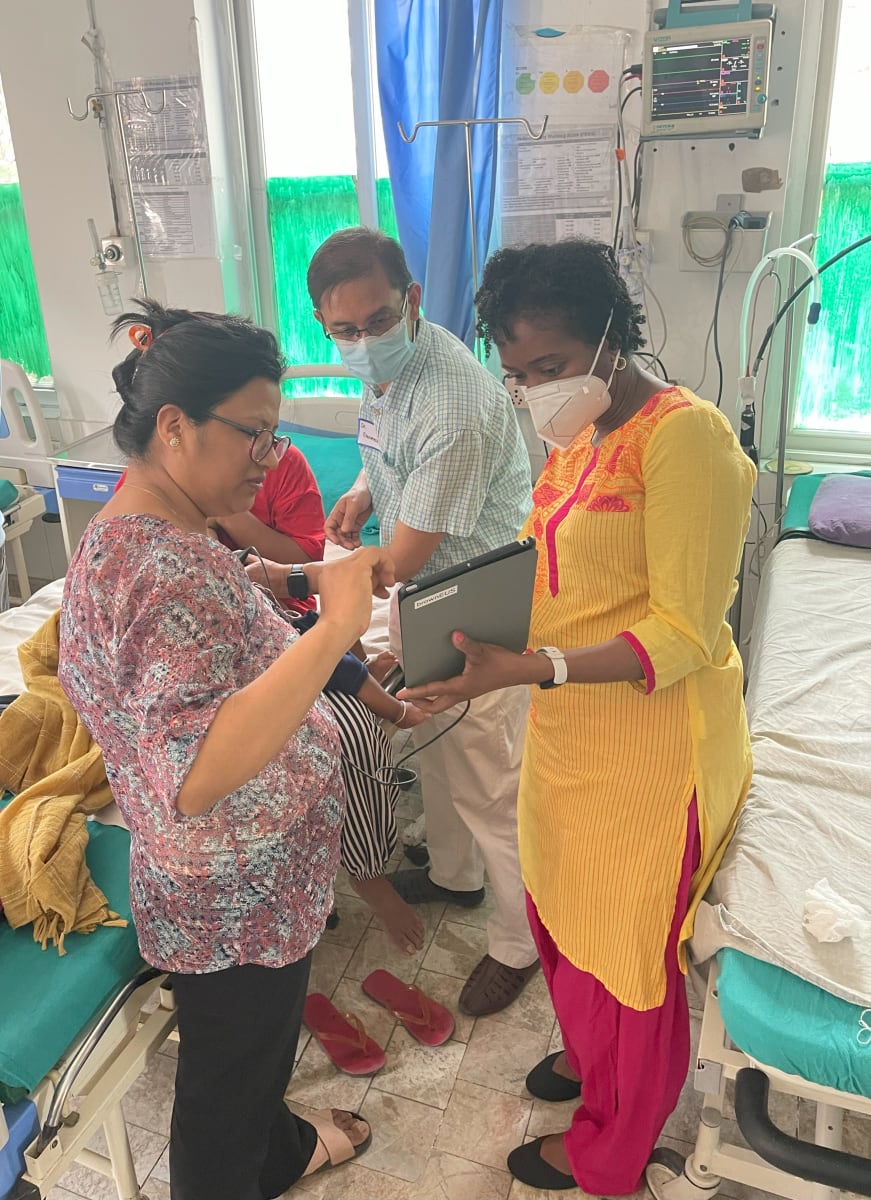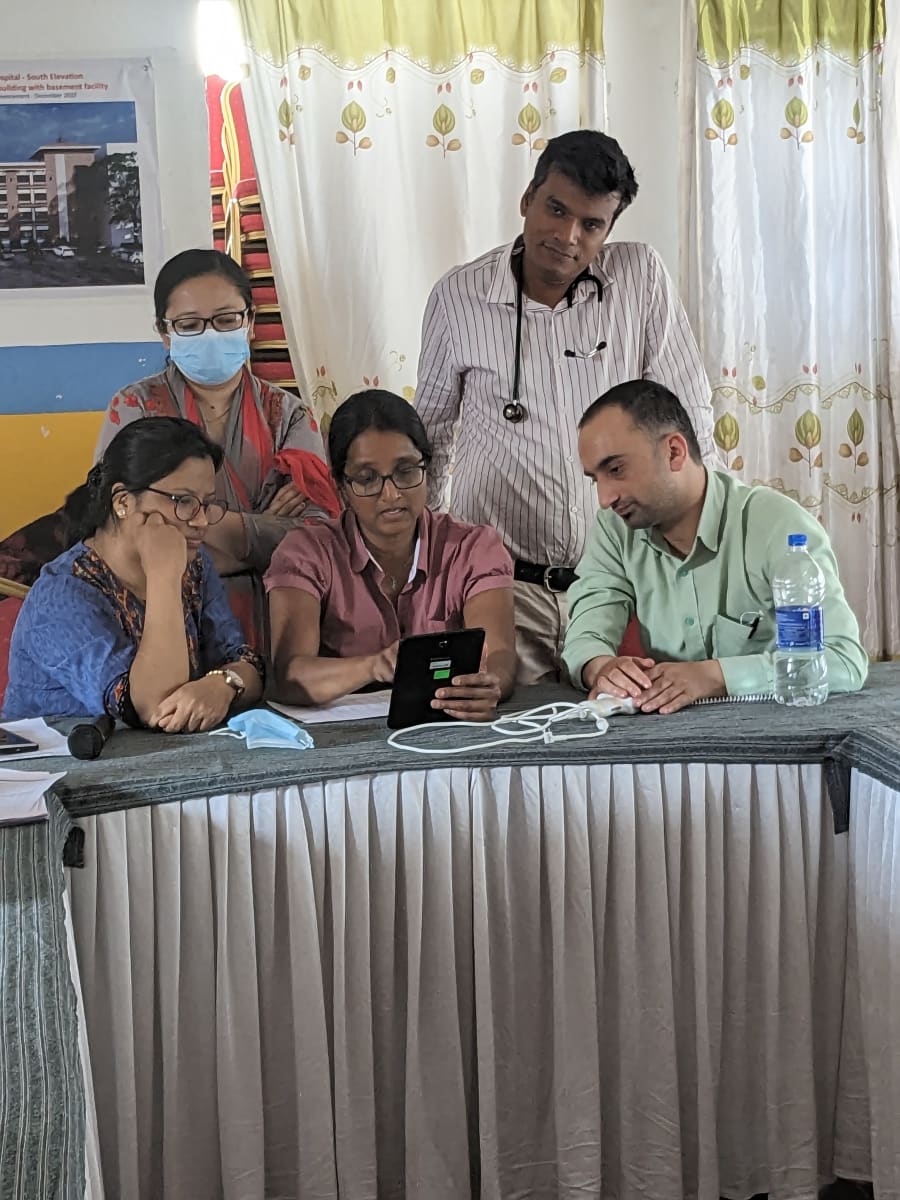Pneumonia remains one of the top 5 causes of under-5 mortality worldwide and in Nepal. Despite chest x-ray being a common modality for diagnosis, its availability and sensitivity, can prove limiting, especially in resource limited settings. Bedside point of care lung ultrasound (POCLUS) is more sensitive, does not require patient transport and often more readily available in rural settings in Nepal. Despite the urgent need, clinicians in Nepal do not have the necessary skills to perform POCLUS. Our project aims to demonstrate that pediatric POCLUS is a feasible way to diagnose pediatric pneumonia and can change clinical management.
We aim to improve care of pediatric patients by training a cohort of Nepali pediatricians to perform point of care lung ultrasound (POCLUS) in suspected pneumonia cases. We believe POCLUS will decrease delays in diagnosis and initiation of treatment of pediatric pneumonia.
The study site is the Siddhi Memorial Hospital in Bhaktapur, Nepal which is a children and women’s hospital. This hospital serves 14,000 pediatric patients per year. Our team will develop a POCLUS curriculum to initially train 10 pediatricians how to perform POCLUS. We are focusing on this population as the physicians requested our content expertise in this area as remains one of the top 5 causes of under-5 mortality worldwide and in Nepal. Our colleagues in Nepal are incredibly motivated to make changes that impact their pediatric community.
Our goal is to improve care of pediatric patients with suspected pneumonia by decreasing diagnostic delays and treatment initiation. To that end, we intend to perform a study to demonstrate change in clinical behaviors of the providers.
After this initial training, we hope to continue this project by creating a Training of the Trainer (TOT) curriculum to prepare the current participants to teach other clinicians in rural areas how to perform POCLUS. Our goal in using the TOT model is to create a cadre of Nepali pediatricians continuously disseminate this knowledge in rural areas, ensuring sustainability through capacity building.
We will also plan to set up monthly image review sessions with our Nepali colleagues. These sessions are intended to provide mentorship for our colleagues by reviewing cases they have seen in the prior month, providing feedback on image acquisition, and helping to troubleshoot any technical difficulties with their ultrasound machines.






This educational initiative was laying the groundwork for use of POCUS in Nepal. We did virtual simulations and lectures for ~2 months with pediatricians in Nepal. This trip allowed us to do 6 days of intensive hands-on training with the pediatricians using the US machines that were available at their hospital. We plan to study the effect of the curriculum on provider confidence and knowledge as well as change in care for patients (using more US than CXR). Additionally, if this pilot initiative proves successful, we hope to collaborate with the Ministry of Health to train providers in rural areas to do pediatric lung US as oftentimes, US is more readily available than CXR. Anecdotally, our pediatric colleagues in Nepal were incredibly excited to do the training and were already using it during the training to make decisions on patients. They were also asking about future US trainings including FAST and cardiac exam. We look forward to continuing to collaborate with this group.